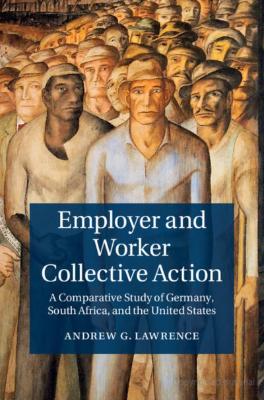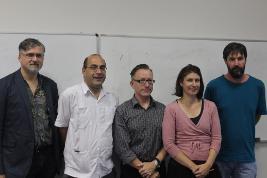
Prof Andrew Lawrence presented his paper entitled Found in Translation: Understanding South Africa's Union Power on 2 March 2016 as part of the Labour Studies Seminar Series which is run by Neil Aggett Labour Studies Unit (NALSU) and the Departments of Sociology, History, and Economics and Economic History.
Prof Lawrence teaches at the Vienna School of International Studies, and taught previously at the University of Edinburgh, UK and the University of Virginia in the US. He has a PhD in political science from CUNY Graduate Center in New York, and has researched and worked with labour movements on three continents for over two decades, including with SADWU and SADTU in South Africa, UCU in the UK and SEIU/1199 and AFT Local 2334. He is presently working on the role of labour movements in contesting and transforming climate policies and politics.
Prof Lawrence reminded participants that it has become increasingly evident that the history and politics of the working class cannot be understood in merely national terms: global perspectives and comparative studies yield essential insights. Drawing on comparative work on Germany, South Africa and the United States, he sought to understand the key issue of the actual basis of the power of labour movements. Large movements often lack power, small movements sometimes wield great power, while many apparent victories by labour ultimately weaken it. To understand these paradoxes, it is essential to look at how unions express power, both in a "dispositional" manner, wielding capabilities, but also in a "relational" manner, their power in relation to the power of employers. Labour movements' power is realised, like electric current, when it moves from one situation, institution, or context to another. Unless power is effectively "translated" into new relations, based on mobilisation and contestation, it can be discharged without gains. Symbols, alliances, vision and translating gains into other arenas play a decisive role. Prof Lawrence provides an overview of these arguments, and how they can help analyse and interpret South Africa's current conjuncture.


From left to right:
Prof Andrew Lawrence, Prof Robert van Niekerk, Prof Lucien van der Walt,
Dr Nicole Ulrich and Mr David Fryer
